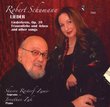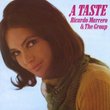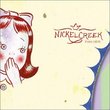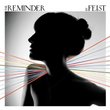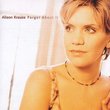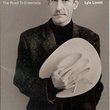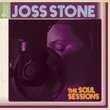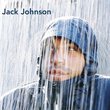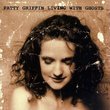| All Artists: Nickel Creek Title: Why Should the Fire Die Members Wishing: 0 Total Copies: 1 Label: Sugarhill Original Release Date: 1/1/2005 Re-Release Date: 8/9/2005 Genres: Country, Folk, Pop Styles: Americana, Bluegrass, Today's Country, Contemporary Folk, Singer-Songwriters Number of Discs: 1 SwapaCD Credits: 1 UPC: 015891399027 |
Search - Nickel Creek :: Why Should the Fire Die
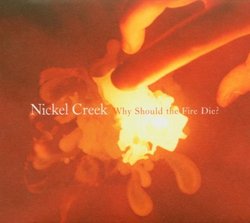 | Nickel Creek Why Should the Fire Die Genres: Country, Folk, Pop
flexfield5 ![header=[] body=[This CD is available to be requested as disc only.]](/images/attributes/disc.png?v=5b450bfd) ![header=[] body=[This CD is unavailable to be requested with the disc and back insert at this time.]](/images/attributes/greyed_disc_back.png?v=5b450bfd) ![header=[] body=[This CD is unavailable to be requested with the disc and front insert at this time.]](/images/attributes/greyed_disc_front.png?v=5b450bfd) ![header=[] body=[This CD is unavailable to be requested with the disc, front and back inserts at this time.]](/images/attributes/greyed_disc_front_back.png?v=5b450bfd) |
Larger Image |
CD DetailsSynopsis
Product Description flexfield5 Similar CDs
Similarly Requested CDs
|
Member CD ReviewsReviewed on 7/6/2008... This was a very strange cd. My husband is a Nickel Creek fan, but even he didn't like this cd. 0 of 4 member(s) found this review helpful.
CD ReviewsVery pleasing (but more Sara please) William Merrill | San Antonio, TX United States | 08/09/2005 (4 out of 5 stars) "Nickel Creek have been somewhat typecast as a gentle bluegrass-pop combo, and it's true that their music is pleasant to hear. But I do admire the way they continue to stretch their musical boundaries, both lyrically and melodically. Listen to a tune such as "Eveline" on the new CD and you will hear acoustic instruments and soft vocals, but there are also complex harmonies and tricky chord changes. As others have noted, N.C. continues to evolve in interesting ways. On the distribution of lead vocals, I do like Chris Thile's great singing - "When You Come Back Down" is one of my very favorite songs - but on this latest disc, I'm really wishing they would give Sara a chance to sing more. Chris sings seven songs this time, Sara three, and Sean one. I'm a Creek fan, although I've stopped short of buying Chris or Sean's solo albums. Sara is the one band member whose solo CD I would definitely buy -- but she has never done one." A great recording that requires explanation Kim A Miller | Windsor, CT United States | 08/11/2005 (5 out of 5 stars) "Like many great artists who have gone before, Nickel Creek tends to befuddle many listeners. What is it? What box does it fit into? Why is there so much Chris Thile influence on it? And my all time favorite? Why are they getting so dark?
My review is that this is a fine album. I'd give it 4.6 out of 5 which brings it up to 5 in round numbers. But last question first. Dark? hmmm, let's look at their self titled debut album: Lighthouse Tale: Death, Sweet Afton: Death, When you come back down: Breakup, the Hand Song: Death, The Fox: Animal Deaths. Not much change, huh? I think for some folks, it's darker because the music matches the subject matter a bit closer. But overall, the subject matter hasn't changed much. If anything, this album is more honest and in your face. Now, the second to last question that seems to come up. Why is there so much of Chris Thile on this album? In this case, folks have to be thinking about influence, not content you can add up. In both the debut album and "This Side" Chris is the dominant player, singer and writer. And if you don't think this is true, just add up the number of mandolin lead songs, the number of Chris solos, the number of songs written by Chris and the number of songs with lead singing by Chris and Sean and Sara. If anything, this album has far more harmony singing, more togetherness, fewer songs where Chris sings alone. Catgeories are the real problem for most folks. Let's face it, NC loves to experiment and complement. They complement The Beatles, Paul Simon, Bob Dylan and others on this album. And they do it with virtuosity and style. But if you don't like to wander, you will always find NC frustrating. They've been doing it from the beginning. Robin and Marion (debut album) ain't bluegrass. The real problem in understanding NC is the "voice" or point of view of the composers. I'm not saying I always get it either, but many songs are not about Chris or Sara or Sean. They pick a character from fiction or films or their experience and write the story from their perspective. This can cause all kinds of misunderstanding and guesses about their lives, loves, politics, etc. Do NOT assume the music is autobiographical or that Chris has lost his faith. The more I listen to this album, the clearer it is to me that most of these songs are about non-band members. For example in the song, "When in Rome," which I see as a scriptural admonition to "set your heart not on things of the earth" voices or represents what those who live in Rome think, so the "voice" sounds cynical, mentions book burning, etc. You have to get the "voice" to get the songs. A lot of folks had the same problem with the title cut from Deceiver. (edit from 2008 article, (http://www.nctimes.com/articles/2008/02/23/entertainment/music/12_56_062_20_08.txt) "It was easy to speculate that the last Nickel Creek record included commentary about Thile's love life." Chris speaking: "Actually, no. All of those songs were done before. Some of those songs were about a friend. I would have deserved to be broken up with had 'Can't Complain' been told from my point of view; they most certainly were not." Then, there is the music. Such music. I live for the instrumentals and the instrumental breaks in each of the songs, the counterpoints, harmonies, riffs and the delicate, classical fingerings. Amazing stuff you will not find anywhere else in popular music. Then there are the songs that just get you. For me, the song off this album that does that is Doubting Thomas. Has anyone ever written a better, more honest popular song that describes the struggle of trying to be "in the world and not of it"? "Please forgive me for time that I've wasted" brings a tear every time I hear it. When you are talking instrumentals, this CD has MORE than This Side. Don't just count the numbers which don't include singing (there are 3 to the one on "This Side"). For example the musical break in the Dylan song which begins at about 1:40 and lasts about a minute is as pretty and pure and complex a piece of Nickel Creek classical grass as you will hear. It's fine work. Nickel Creek is unique." |

 Track Listings (14) - Disc #1
Track Listings (14) - Disc #1
